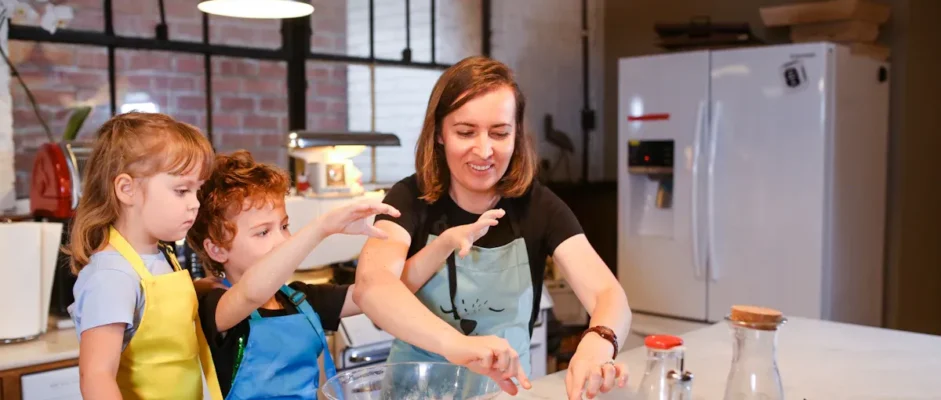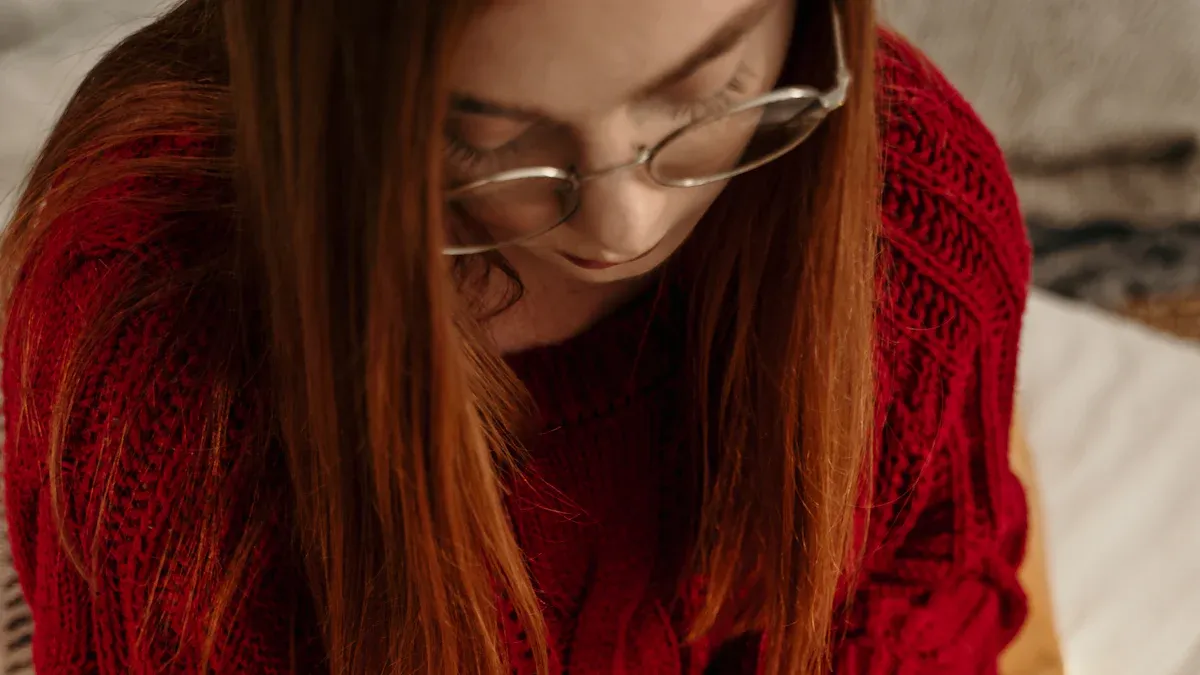I want to be honest. The Baker of Lost Memories by Shirley Russak Wachtel surprised me a lot. This book has a lot of strong feelings. I could feel the history and family secrets in every chapter. If you want a story you will remember, this book gives you that.
Key Takeaways
The Baker of Lost Memories tells a touching story about family secrets, forgiveness, and hope.
These feelings stay with you after you finish reading.
The story takes place in Brooklyn during the 1960s.
Baking is used as a symbol in the book. This makes the setting feel real and comforting.
It also makes the story feel more emotional. – People who like true and emotional family stories will enjoy this book.
Verdict
Worth Reading?
I’ll be honest, I started The Baker of Lost Memories by Shirley Russak Wachtel late one night, thinking I’d read just a few pages. Suddenly, it was 2 a.m. and I was still turning pages.
This book pulled me in with its raw emotion and the way it handles family secrets. I felt the weight of history in every scene. Sometimes, I had to pause and just sit with what I read. My heart ached for Lena and her family.
Note: If you want a story that feels real and sometimes hits a little too close to home, this one delivers. It’s not a pulse-pounding thriller, but it’s the kind of book that lingers in your mind.
This book doesn’t shy away from tough topics, but it never feels heavy just for the sake of it. The story moves at a steady pace, and I never felt lost or bored.
If I had to rate it, I’d say it lands at a solid 7/10. It’s not perfect, but it’s honest and heartfelt. I couldn’t put it down, even when I wanted to look away.
Who Will Like It
Not every book is for everyone, and that’s okay. Here’s who I think will really connect with The Baker of Lost Memories by Shirley Russak Wachtel:
You love stories about families with secrets and complicated pasts.
You want to feel something real—maybe even shed a tear or two.
You like books set in the past, especially the 1960s, with a strong sense of place.
You’re interested in how history shapes people, especially through the lens of the Historical event.
You appreciate books where food and baking bring people together and offer hope.
If you’re looking for a light, funny read, this probably isn’t it. But if you want a book that makes you think about your own family and the stories you carry, you’ll find a lot to love here.
About the Author
Shirley Russak Wachtel
I always get curious about the person behind a story that sticks with me. Shirley Russak Wachtel writes with a kind of honesty that feels rare. She grew up in Brooklyn, just like Lena in the book. That connection shows in her writing. I can almost taste the bread and feel the family tension because she writes from a place of real experience.
What I like about Wachtel is how she doesn’t try to make things prettier than they are. She faces tough subjects head-on. She writes about family, memory, and the weight of history. I respect that. She also has a background in teaching, which probably helps her create characters who feel real and flawed.
Note: I couldn’t find every detail about her life, but I know she brings her own family’s stories into her books. That makes her work feel even more personal.
Other Works
If you finish The Baker of Lost Memories and want more, you’re in luck. Wachtel has written other books that dig into family and history. Some of her other works include:
My Mother’s Shoes – This one also explores family secrets and the past.
Three for a Dollar – A memoir that looks at growing up in Brooklyn.
The Music Makers – A novel about hope and survival.
I haven’t read all her books yet, but I plan to. If you like stories that feel honest and close to home, her other books might be worth checking out.
The Baker of Lost Memories by Shirley Russak Wachtel

Plot Summary
I got pulled into The Baker of Lost Memories by Shirley Russak Wachtel right from the start. The story centers on Lena, a young girl living with her mother, Eva, and her grandmother, Babi. Their family feels tight but also full of secrets.
I could sense the weight of things left unsaid every time Lena tried to ask about her father or the past. The book doesn’t just tell you about the Holocaust’s impact—it lets you feel it through Lena’s confusion and Eva’s silence.
Lena wants answers about her family’s history.
Eva tries to protect Lena from painful memories.
Babi bakes bread, using food as a way to hold the family together.
I found myself rooting for Lena as she searched for the truth. The story doesn’t rush. It lets you sit with the characters and their pain. Sometimes, I wanted to shake Eva and tell her to open up. Other times, I just wanted to hug Lena. The Baker of Lost Memories by Shirley Russak Wachtel shows how trauma can echo through generations.
The family’s secrets felt heavy, but the hope in Lena’s search kept me turning pages.
Setting
The book takes place in 1960s Brooklyn. I could almost hear the city outside Lena’s window and smell the bread baking in their apartment. The setting isn’t just a backdrop—it shapes everything. The busy streets, the close-knit neighborhoods, and the small apartment all add to the feeling of being both safe and trapped.
The 1960s details make the story feel real.
Brooklyn’s mix of cultures and history adds depth.
The apartment kitchen becomes a place of comfort and conflict.
I loved how the setting made the family’s struggles feel even more real. The Baker of Lost Memories by Shirley Russak Wachtel uses Brooklyn to show both the hope and the pain of starting over.
Themes
Family & Forgiveness
I have to admit, this book made me think about my own family. The way Lena, Eva, and Babi struggle to connect felt so real. Family bonds in this story are messy, but that’s what makes them honest. I saw how forgiveness isn’t easy.
Sometimes, it’s not even possible right away. The characters hold onto pain, but they also reach for each other. That push and pull between love and anger had me nodding along. I felt the tension at the dinner table, the silence after a fight, and the small moments of kindness that mean everything.
Family isn’t perfect here. That’s what makes it believable.
Forgiveness comes in small steps, not big speeches.
Memory & Secrets
Secrets fill every corner of this book. I kept wanting to shout, “Just tell her the truth!” But I get it. Sometimes, memories hurt too much. The story shows how secrets can protect and destroy at the same time. Lena’s search for answers made my heart race.
I could feel her frustration. The way the past shapes the present is chilling. Every time someone baked bread, I felt hope sneak in, even when things seemed dark.
Food and baking aren’t just background—they’re how this family tries to heal.
War & Redemption
The shadow of war hangs over everything. I saw how trauma from the past doesn’t just fade. It sticks to families, even years later. But there’s also a sense of redemption. The characters try to build something better, even if it’s just a loaf of bread or a quiet moment together. That hope kept me reading. I wanted to see if they could find peace, even with all the scars.
Characters & Style
Lena and Family
I have to admit, Lena’s family felt so real that I sometimes forgot I was reading fiction. Lena grabbed my attention right away. She’s curious, stubborn, and sometimes a little lost—just like any teen trying to figure out her place. I saw myself in her, asking questions nobody wants to answer.
Eva, Lena’s mother, kept me guessing. She’s loving but guarded. I wanted to shake her and say, “Just talk to your daughter!”
Babi, the grandmother, became my favorite. She uses baking as her way to show love. Every loaf of bread felt like a hug, even when words failed.
The family’s arguments and quiet moments hit close to home. I found myself rooting for them, even when they made mistakes. Their pain felt honest, not forced. I could almost hear their voices in my head.
Writing & Pacing
Wachtel’s writing style is simple but powerful. She doesn’t waste words. Every scene matters. I never felt lost or bored. The story moves at a steady pace, letting me sit with the characters’ feelings.
Short chapters kept me reading “just one more.”
Dialogue sounded natural, like real people talking in a kitchen.
Descriptions made me hungry for bread and hungry for answers.
To be fair, sometimes I wanted more depth in side characters. Still, the focus on Lena’s family kept the story tight. The writing made me care, and that’s what matters most.
Emotional & Historical Impact

Reader Connection
I have to admit, this book got under my skin. I found myself thinking about Lena and her family long after I closed the last page. Sometimes, I even caught myself staring at the ceiling, replaying their arguments and quiet moments. The way Shirley Russak Wachtel writes about family pain and hope made me feel like I was right there in the kitchen with them.
I felt Lena’s confusion and frustration. Her search for answers reminded me of times I wanted the truth from my own family.
The scenes with Babi baking bread made me hungry, but also a little sad. Food in this story means more than just eating—it’s comfort, memory, and sometimes a way to say “I love you” without words.
I noticed how the smallest details, like the smell of bread or the sound of the city, pulled me deeper into their world.
Strengths & Weaknesses
Highlights
I have to give props to Shirley Russak Wachtel for making me care so much about Lena and her family. Here’s what stood out to me:
Emotional honesty: The feelings in this book hit hard. I found myself pausing to breathe after some scenes. The pain and hope felt real.
Strong sense of place: Brooklyn in the 1960s came alive for me. I could almost smell the bread and hear the city outside the window.
Family dynamics: The arguments, the silences, the small acts of kindness—these moments felt true. I saw my own family in their struggles.
Simple, clear writing: The story never got bogged down. Short chapters and real dialogue kept me turning pages.
Food as comfort: Baking isn’t just background here. Every loaf of bread means something. It’s love, memory, and sometimes forgiveness.
Sometimes, I couldn’t put it down. The story pulled me in and wouldn’t let go.
Critiques
No book is perfect, and this one has a few weak spots:
Some side characters felt thin. I wanted to know more about them, but the focus stayed tight on Lena’s family.
The pacing slowed in the middle. I found myself wishing for a little more action or surprise.
A few scenes repeated the same feelings. I got the point, but I wanted new layers or twists.
The ending left me with questions. I like some mystery, but I wanted a bit more closure.
To be fair, these are small things. The heart of the story still shines. If you want a book that feels honest and close to home, this one delivers.
Final Thoughts
I’ll be honest, The Baker of Lost Memories surprised me. I picked it up late at night, thinking I’d read a chapter or two. Suddenly, I looked at the clock and realized hours had passed. The story pulled me in with its honesty and made me care about Lena and her family.
The emotional honesty stands out. I found myself pausing to breathe after some scenes.
The Brooklyn setting felt real. I could almost hear the city and smell the bread.
Some side characters felt thin, and the pacing slowed in the middle. To be fair, the heart of the story still shines.
I finished this book with a full heart and a few tears. If you love family stories with real emotion, this one’s for you.
Strengths: Honest feelings, strong Brooklyn setting, food as comfort
Weaknesses: Some slow spots, thin side characters
Dionysus Review Rating: 7/10
Sip The Unknown—Discover Stories You Never Knew You’d Love!
Dionysus Reviews Has A Book For Every Mood
Biography & Memoir
Fiction
Mystery & Detective
Nonfiction
Philosophy
Psychology
Romance
Science Fiction & Fantasy
Teens & Young Adult
Thriller & Suspense
Frequently Asked Questions
Is this book too sad to read at night?
I read it late and felt a little heavy, but the hope and warmth from the family scenes helped balance the tough moments.
Will I want to bake bread after reading?
Absolutely! Every time Babi baked, I craved fresh bread. The descriptions made my stomach growl and my heart feel full.









